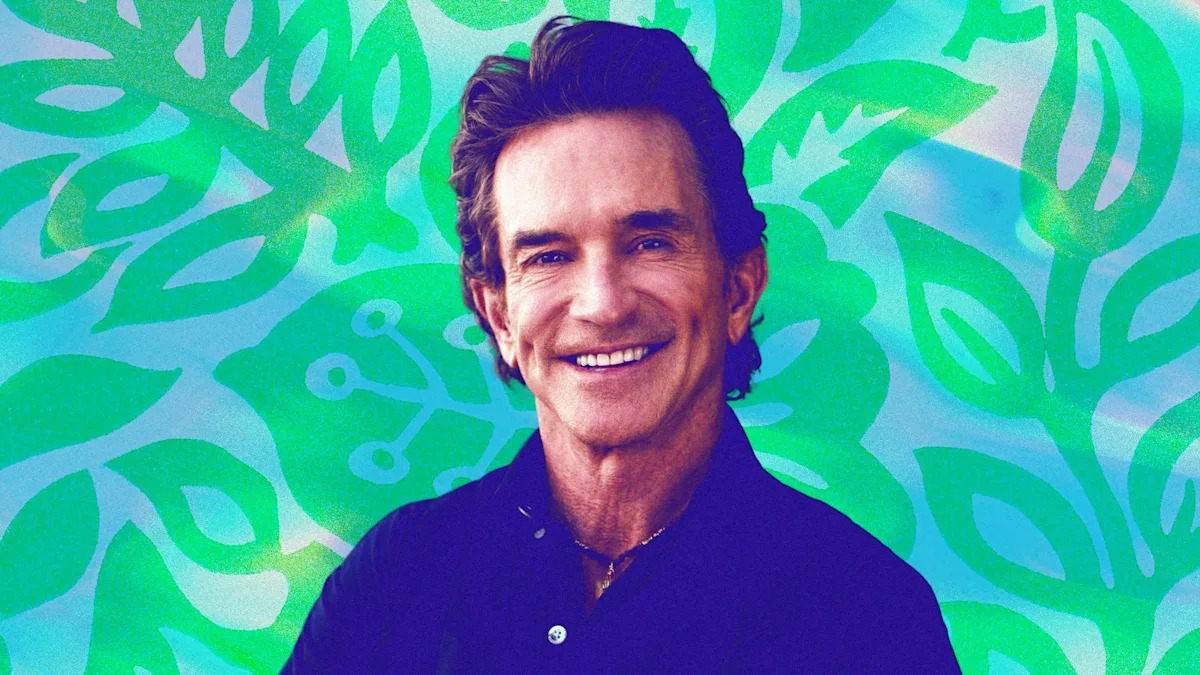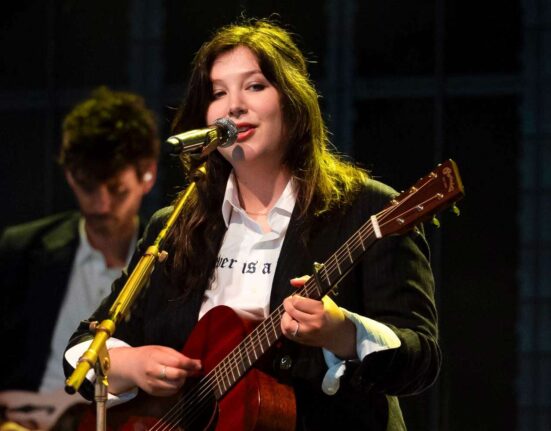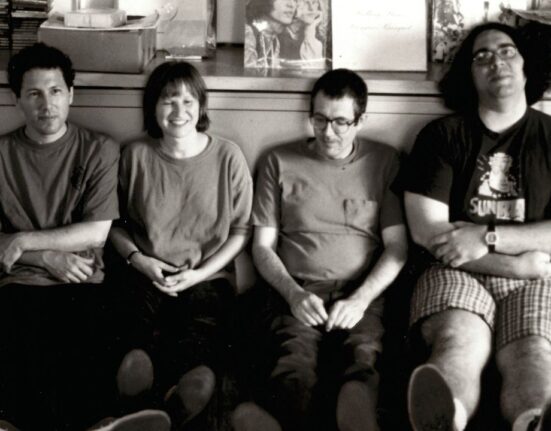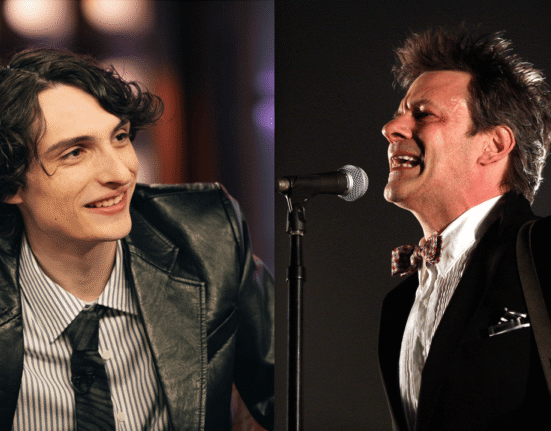As Survivor approaches its landmark 50th season, the inevitable question hangs in the air: Can the reality juggernaut really keep going forever? The show has outwitted trends, outplayed rivals and outlasted almost every other series of its era on television, redefining the reality genre and our understanding of what it means to compete.
Jeff Probst is at the center of it all, having hosted and, increasingly, steered the show since its debut. Ask him about Survivor’s longevity and he doesn’t hesitate.
“I think the Survivor format can live forever. And you can put a period at the end of that sentence,” he tells Yahoo.
A winning formula
What has kept the torch burning all these years? According to Probst, 63, it’s the show’s elegantly simple premise. A group of strangers is dropped on a remote island and the individuals are left to fend for themselves: forging alliances, building shelter and battling it out in challenges. Only one will win.
At its heart, Probst explains that Survivor remains “a laboratory for human behavior — a complex social experiment inside a giant adventure.” There’s something, or someone, we can all relate to. That’s why it’s still a hit. It was the No. 1 entertainment show 2023-24 season among adults in three key demos.
From the moment Richard Hatch said, “I’ve got the million-dollar check written already. I mean, I’m the winner,” on his very first day on the island in the very first season of the show, Survivor became watercooler fodder, drawing tens of millions of viewers and introducing phrases like “immunity idol” and “the tribe has spoken” into the national lexicon. It was appointment television in an era before streaming, blending game show suspense with real human drama.
Over nearly 25 years, the core formula has endured, even as tribal councils have grown more dramatic and gameplay twists have come and gone. But Probst isn’t afraid to shake things up. In 2020, he and the producers launched what they call Survivor’s “new era,” rebooting the game with fresh strategies and a vibe he says was more inspiring and family-friendly.
“It was the biggest risk we’ve taken,” Probst admits of the overhaul starting with Season 41. “We essentially closed [a 20-year] chapter and said we’re going to birth a new version. Still within the rules of the format as we see it, but it was scary and exciting to make Survivor feel brand new again.”
Probst, who also serves as an executive producer, admits they “went too far” with some risky twists, like “do or die” — a high-stakes gamble that forced contestants to risk their spot in the game on a luck-based choice — and the hourglass twist, which let one player flip the results of a challenge, turning the winners into targets and the losers into the safe ones. But as Survivor premieres on Wednesday, he believes they’ve finally found the sweet spot.
“We all think it’s working, and we don’t see any need to change it,” Probst says. “We’ll just continue to play inside this new format.”
Jeff Probst films Season 48 of Survivor in Fiji. (Photo: Robert Voets/CBS via Getty Images)
Survivor’s first torch
Survivor started as a summertime gamble for CBS, adapted from a Swedish competition series, when it debuted in 2000. Casting the host was the first piece of the puzzle, and Probst was both an unlikely and unconventional choice.
Probst grew up in Wichita, Kansas, making short films as a teenager before joining his dad at Boeing, where he produced and hosted marketing videos. His first on-camera break came on a Seattle home-and-garden show, and later he landed hosting gigs on FX, Rock & Roll Jeopardy! and Access Hollywood.
It wasn’t star power that got him the Survivor job. It was his knack for live television and how he could pull honest, unscripted moments from even the most media-savvy celebrities. In fact, a 1999 television interview with Sandra Bullock first caught the attention of show creator Mark Burnett.
“The one thing that had been going against me [before Survivor] was that network executives would always say, ‘You have talent, but you don’t have a name, and we need a name.’ Mark said, ‘I don’t want any name. I just want somebody who I think can handle it,’” Probst recalls. “Even though we’re taping [Survivor], it’s live. There’s not going to be any do-overs. Whatever happens, happens, and you’ve got to go with it.’”
Probst credits Burnett for empowering “me to be me.”
“He never told me what to say or questioned something I might have asked at Tribal Council, even though I’m sure there were times when he was squirming in his chair,” Probst says. “But he made me believe I was doing a good job, which gave me the confidence to continue following my instincts and making mistakes but also discovering what works because I didn’t have the fear.”
Not just the face of the franchise
Probst’s influence runs far deeper than what viewers see onscreen. If there’s a secret to the show’s longevity, he says, it’s always been about the people.
“Almost the whole year is spent casting. It’s about 10 months. Then we go shoot, and when we return, we immediately begin casting again,” he says. “It’s one of the best parts of the job.”
That rhythm is relentless, but it’s never gotten old for Probst. If anything, the casting process is the purest version of what Survivor is all about: finding people who surprise you.
“In the early days, casting was very archetypal — straight out of mythology. We looked for specific types: the ingenue, the villain, the mentor. We tried to build groups to see those dynamics, like Richard Hatch and Rudy Boesch’s friendship in Season 1,” he recalls.
Hatch, an openly gay (and often naked) man, formed an unlikely alliance with Boesch, a Navy SEAL who made no secret of his conservative views. They were friends until Boesch died in 2019. While Probst says they may have been trying to cast certain archetypes early on, he notes that “casting has matured” and they’ve “moved away from that” strategy.
“Now I don’t chart types or look for archetypes,” he says. “The details come out naturally.”
That evolution also means rethinking the so-called villain role, and Probst says they aren’t “actively looking for people” to play the antagonist.
“Any time you have a large group of people, somebody is going to be perceived as a villain by someone else,” he says. “We’re in a different place right now where there are people that we put on in the past that we wouldn’t put on today — not because they’re not worthy of playing Survivor. That’s just not the stories we want to tell right now.”
A cast provides plenty of drama, but don’t discount the backdrop.
For all the game’s twists, idols, and evolving strategies, Survivor’s most reliable challenge is the one no player can outwit: nature itself. As much as fans debate alliances and blindsides, the elements remain undefeated — and even the host isn’t immune.
The show’s 49th season once again returns to Fiji, Survivor’s home base since Season 33, where temperatures often climb into the high 80s, humidity soars and shade is a luxury.
“This year, the heat really stood out. It’s always hot in Fiji, but not this hot — I even found myself forgetting questions in the middle of Tribal,” Probst says. “You’ll see the sweat on me and the players. The physical environment is a huge part of Survivor. We’ve gotten so used to it that we just overlook it, but you can’t. It’s a very big element.”
Outplaying, outlearning
After 25 years, Probst has learned a thing or two about survival — and not just when it comes to the game.
Turns out, staying camera-ready on a jungle set for a quarter-century comes with its own set of challenges. Forget immunity idols; for Probst, the real secret weapon is a well-worn baseball cap, a bonfire for mood lighting and, these days, a dermatologist on speed dial.
“I have photos of me in the early seasons with lots of crew members: no hat, no shirt, no sunscreen. And there was a time when I came home and I did an interview. When I read the interview, the first line said ‘the rugged weathered host of Survivor sat down …’ and I went ‘weathered?!’” Probst recalls. “I went to a dermatologist and said, ‘OK, what do I need to do to get my face back in shape?’ And since then, my [grooming] routine is lots of sunscreen and face lasers.”
That low-maintenance approach is exactly the way Probst likes it. “The fun thing about Survivor is I wear a hat during the day, and I’m lit by fire at night. So one hides my sweat and wrinkles, and the other is flattering,” he laughs. “I don’t even have to take showers on Survivor. I literally throw on the same shirts with the same baseball cap. The only thing I’m wearing is a baseball cap.”
After almost three decades in the game, it’s fair to ask: What has Survivor taught its host? For Probst, the growth is ongoing.
He admits the passage of time has changed him. “I feel my age — the time in the jungle, editing, meetings, new ideas — it all adds up,” he says. “I’ve learned the importance of having a point of view, even if it goes against the grain. I’m not competing with players. I’m there to serve. The best players use my questions to move their game forward.”
His role, he says, has become almost mythic — something between mentor, foil, and a character in his own right. “Now, I’m in more of a … I don’t really know what the word is. Maybe you’ll know what it is. It’s not a parental role and it’s not a mentor role, but it is very mythological in the sense that I have probably become my own archetypal type of character without even realizing it. But I enjoy it in a very different way. I am only there to serve.”
And so, as Survivor nears its 50th season, Probst isn’t slowing down or planning an exit. He’s still at the center of the fire, chasing the same dream that’s powered him from the start.
“All I ever wanted, from when I was little, was to be a storyteller and a leader. … My mom taught me storytelling, my dad taught leadership, and I was always interested in people,” Probst says. “I don’t know if I manifested it or if I just walked in the right door on the right day, but Survivor is literally everything I dreamed of.”
As long as there’s a game to play, a story to tell, and a sun to outlast, Jeff Probst will be right there — hat on, torch in hand, and never, ever “weathered.”











Leave feedback about this